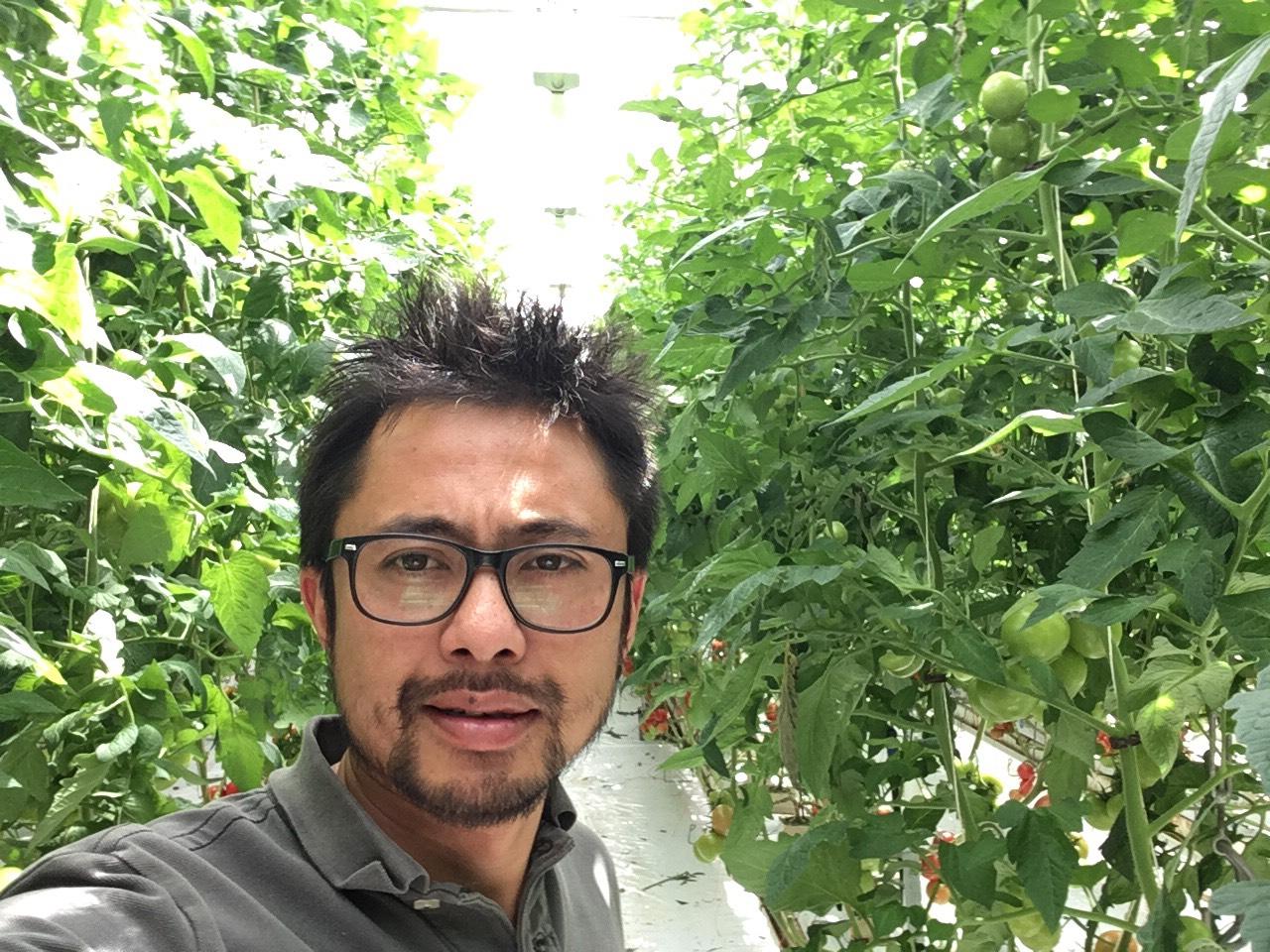Over the last year Vivent has had the pleasure of working collaboratively with an electrophysiologist who has been using PhytlSigns in tomato and eggplant greenhouses as part of the Swiss government’s drive for Smart Farming and Digitisation in Agriculture. We recently found out more about his back story.
Daniel Tran is a post-doc plant biologist working for Agroscope Conthey, the Swiss agricultural research station, near the mountains of Verbier. He’s spent almost a year working in conjunction with Vivent on a Swiss government funded project to record and analyse plant electrophysiology signals using PhytlSigns and apply learnings to horticulture crops.
Born in the Pyrenean region of France, Daniel, who is a 1st Dan in Taekwondo, obtained a Bachelor degree in Cell Biology from the University of Bordeaux, followed by a Masters in Plant Biology and Physiology at the University of Pierre and Marie Curie Paris and then a PhD in Plant Biology at the University of Paris South. During and after his studies he’s worked at some impressive French plant research institutes, including INRA and CNRS, but it was at the University Paris Diderot that he became interested in plant signalling whilst being part of an enthusiastic team there. Since then he has researched mechanosensitive channels involved in signalling in Arabidopsis at Canadian as well as French universities. Fortunately for Vivent, his keen interest and expertise in electrophysiology is enabling him to carry out ground-breaking research at his current post-doc fellowship at Agroscope working with Dr Cedric Camps.
After spending a lot of time experimenting with PhytlSigns- observing how it can detect plant reactions to water stress, changes in light, temperature, salinity, fertiliser levels and even insect attack, he’s achieving some amazing results, thanks in part to the use of AI and machine learning. Daniel can process and model huge amounts of data to generate meaningful grower information. He has no doubt that PhytlSigns will have a big impact for commercial growers by providing a super-fast ‘alarm’ for plant problems. He also thinks many plant researchers will be excited to benefit from being able to study plant electrosignalling in real conditions without a Faraday cage.
Daniel has submitted results for publishing and will be presenting a poster at the upcoming GreenSys conference. He feels this is a very appropriate platform to show case these game-changing results as part of the digitisation of agriculture in commercial greenhouses. The exciting, dynamic subject of new sensor technology for greenhouse and outdoor growers is an area that he’s hugely interested in and will consider as a future career direction, although for moment he’s very happy to be based in the beautiful, relaxed environment of the Valais region in Switzerland!
Whatever the future holds for Daniel we at Vivent wish him well and thank him for his continued hard work and dedication to project PISA.

